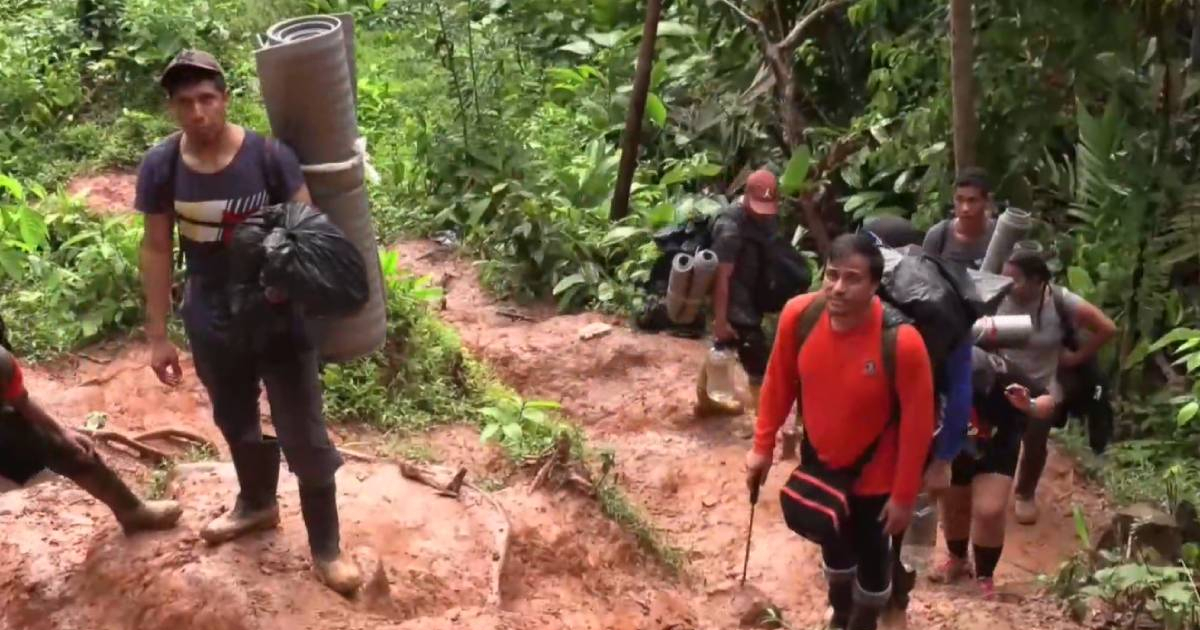
The arrival this Tuesday of a flight from Panama to Medellín, Colombia, marked the beginning of the deportation of migrants crossing the Darién jungle, in an operation funded by the United States government as part of a strategy to curb emigration to its territory.
According to Panamanian authorities, this flight marks the beginning of a new strategy by the government of José Raúl Mulino to reduce the massive flow of migrants crossing through Darién, with the United States as the final destination, reported the newspaper El País.
At the border between Colombia and Panama, the flow of migrants has turned into a humanitarian crisis as thousands of people from various nationalities risk their lives crossing the dangerous Darién jungle, a route that has increasingly been used in recent years.
Cubans have played a crucial role in the massive crossing of the previously impassable Darién route, which has reached record numbers in recent years. In 2021, more than 130,000 migrants, mostly Haitians and Cubans, traversed the dangerous jungle.
This number shot up to 250,000 in 2022, driven by a significant increase of Venezuelans and Ecuadorians.
Last year, more than half a million migrants ventured along this route, with Venezuelans accounting for up to 60% of the total, according to data from Panama.
The Panamanian government intensified its immigration response a few months before the presidential elections in the U.S., which has resulted in a bilateral agreement that allows Panama to deport all migrants who enter irregularly.
This agreement, reached after Mulino came to power less than two months ago, has significant regional implications, particularly concerning the Venezuelan migration crisis and human trafficking in the region.
The agreement between Panama and the U.S. includes financing from Washington for deportations, with an initial commitment of six million dollars.
The Mulino government remains steadfast in its intention to "close" the Darién, a promise made during his campaign that it now seeks to implement with the support of the United States and other countries.
As a precedent, last July the National Border Service (Senafront) of the Republic of Panama closed at least three border crossings commonly used by migrants traveling through the dangerous Darién jungle on their way to Colombia and ultimately to the United States.
In a statement, the Panamanian governmental entity announced that "measures were taken to control the massive irregular migration that the Panamanian state is facing" in order to "channel irregular migration" to Bajo Chiquito, the first settlement that migrants reach after crossing the Darién jungle on foot, as mentioned in a DW report.
As of June 2024, just over 400 Cubans had crossed the Darién Jungle, reported the National Migration Service of Panama.
The Controlled Flow of Migrants Operation, carried out by that entity, recorded a passage through that dangerous border crossing of approximately 174,513 people from January 1 to June 6, 2024.
Of them, only 402 were Cubans, marking a drastic reduction of migrants from the island compared to previous years. In March 2023 alone, 220 Cubans crossed that region, and it was already a reduced figure.
What do you think?
COMMENTFiled under: